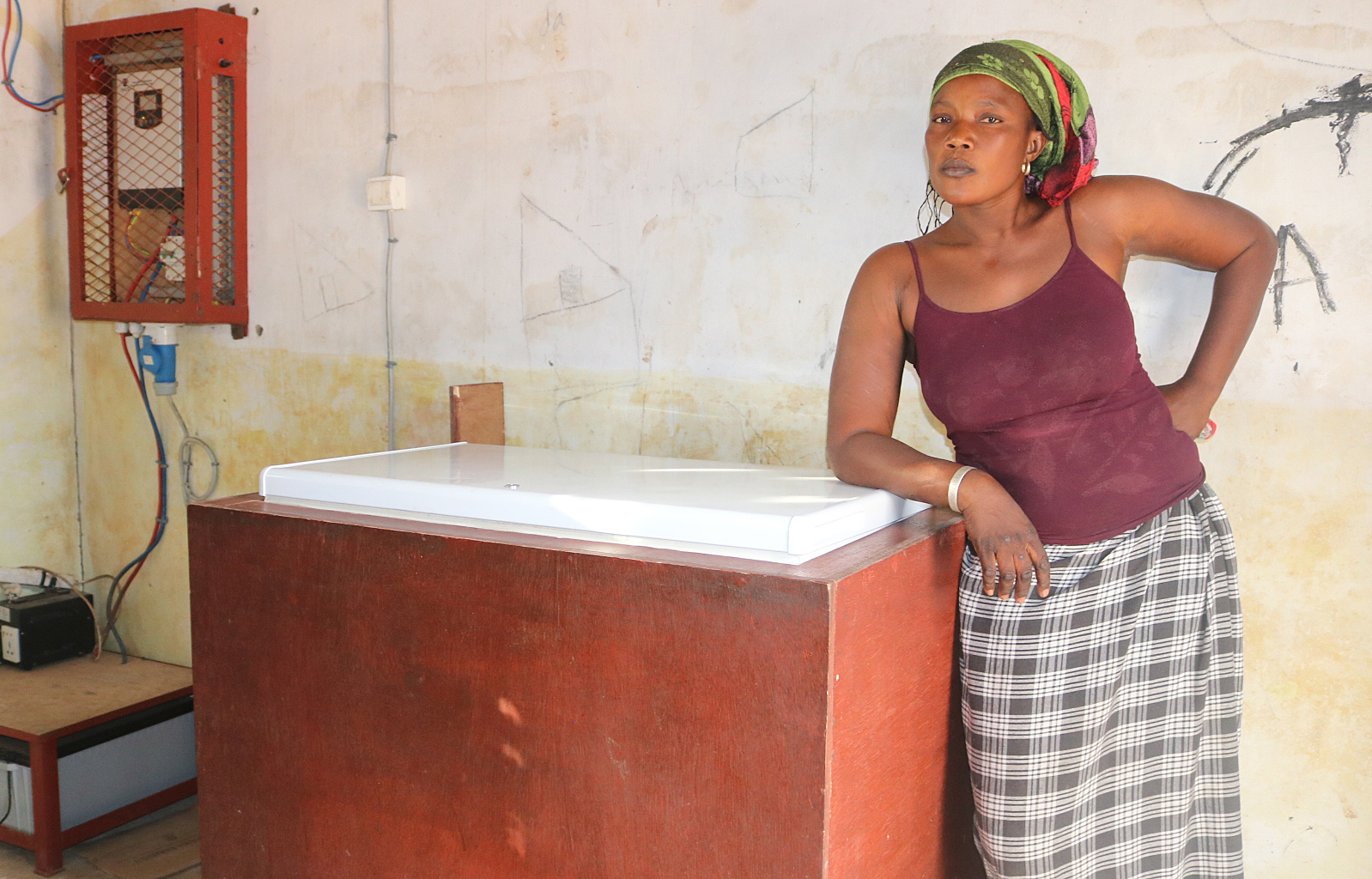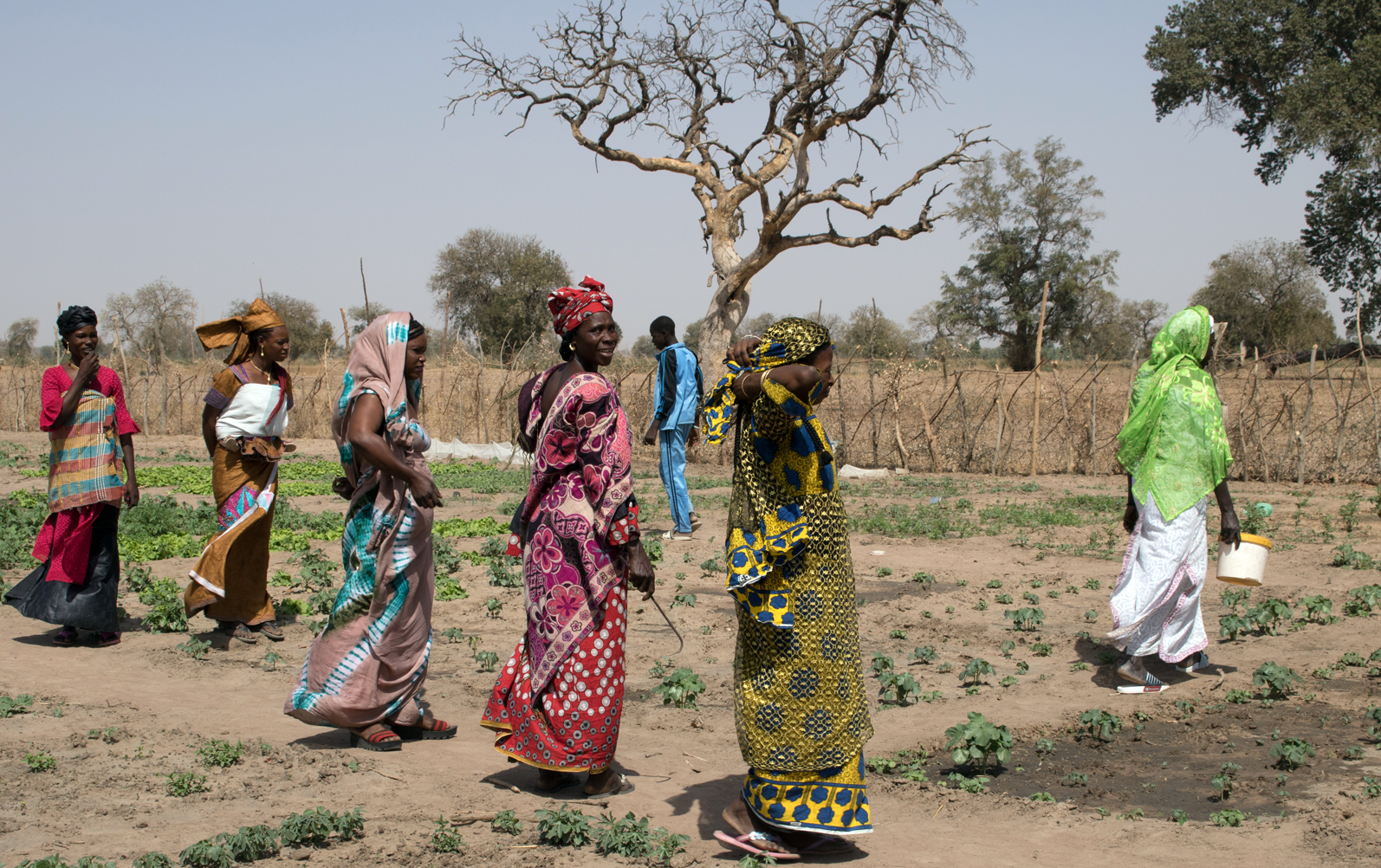How COVID-19 recovery stimulus saved livelihoods during the pandemic
When the pandemic plunged economies around the world into turmoil in spring 2020, small and micro businesses in sub-Saharan Africa were hit hard. On the one hand, such businesses were hamstrung as lockdowns and movement restrictions blocked their access to markets to sell their goods and services, whilst they also contended with interruptions to supply chains leading to shortages of parts and raw materials. On the other hand, they also had to endure a severe drop in demand due to declining consumer liquidity and confidence as well as a general loss of business due to fear of contagion.
Without support packages from governments to help them weather this economic turmoil, the pandemic quickly became an economic crisis for micro businesses, jeopardising all aspects of running a business, from maintaining cashflow, to paying wages or repaying debts. Ill prepared to absorb external shocks, many micro enterprises in sub-Saharan Africa teetered on the edge of bankruptcy in 2020, a desperate predicament for the many families for whom such businesses are their financial lifeline. Relief funding from international development organisations proved indispensable at this point to bring some micro enterprises back from the brink and it is clear that such agencies can also play a vital role in building up the long-term resilience which will help them survive future disruptions.
Emergency funds brought immediate relief to struggling businesses
Nearly 300 women entrepreneurs in Senegal who suffered severe losses as a result of the pandemic were helped to get back to business in March 2021 thanks to a COVID-19 Solidarity Fund set up by ENERGIA, the International Network on Gender and Sustainable Energy. The women were among the 12,000 entrepreneurs supported through the Empowering Women, Engendering Energy programme, which Energy 4 Impact runs in Senegal with funding from ENERGIA. An analysis by Energy 4 Impact earlier in the pandemic revealed that 68% of the enterprises supported under this programme had seen a slowdown in their business activity and 32% had stopped trading entirely. Overall, the supported enterprises had seen an average 75% drop in turnover since the start of the pandemic in March 2020, clearly a catastrophic downturn for any business.
Energy 4 Impact used the funds received from the €43K COVID-19 Solidarity Fund to provide a rescue package to the worse-hit 69 companies and cooperatives across Senegal, benefitting 278 women entrepreneurs directly and over 2,000 people indirectly, including family members and agricultural workers who were able to keep their jobs. Grants ranging from €300 to €1,200 were made available so the entrepreneurs could catch up with loan repayments, pay employee salaries, replace broken solar refrigeration or irrigation equipment, and replenish stock so to reduce the impact of short-term price volatility.
For example, the activities of GIE Takku Ligueye, a market gardening and fruit juice manufacturing consortium in Koupethie Thiaméne, Kaolack, central Senegal, had come to a standstill a few months into the pandemic. Comprised of 100 women in a village in central Senegal, their access to local markets was periodically blocked by movement restrictions and the group had run out of the raw fruits that comprise their production stock. When the motor of their solar freezer started malfunctioning, they had no reserve funds to get it repaired, so the group saw their production output stop entirely and the lack of sales quickly decimated their livelihoods and plunged them into greater poverty. In April 2021, a grant of €600 from the fund enabled GIE Takku Ligueye to repair their freezer, buy bissap fruit stock so they could restart sales of frozen juices, and acquire a solar-powered electric pump to draw up well water and improve crop irrigation. The group also used part of the fund to buy okra and bissap seeds and the resulting harvest generated a €76 profit. Energy 4 Impact advised the group to place this income into a revolving fund for the benefit of all the women in the group. The fund issues loans to refinance the commercial activities of individual group members such as sales of fish or soap. The repaid money can in turn refinance new loans for other women in the group so this type of fund comprises an important security net for informal businesses which would struggle to access credit otherwise.
Amy Sow from GIE Takku Ligueye says,
The first year of the pandemic threw the activities of our group into chaos and many of us worried how we would earn enough money to feed our families. We felt immense relief when support from the fund allowed us to not only reinvigorate our businesses but see our profits rise higher than ever.
Other businesses supported by the fund also experienced a rapid recovery after receiving money in March 2021: in a survey on the impact of the rescue measures completed in September 2021, the average turnover had increased from €118 in January 2021 to €479 in August 2021, a growth of 306%. Their average profit also grew from €27 to €223 during the same period. Not only did the money allow entrepreneurs to purchase inputs, raw materials and repair or replace equipment, it also crucially enabled around half of them to get back on track with credit repayment. When surveyed about the benefits of the solidarity fund, 71% of the entrepreneurs stated that the support had had a positive impact on the recovery of their business activities
Suppliers and financial institutions also needed support to survive
The pandemic not only had a severe impact on micro enterprises, it also had a knock-on effect on other key players in solar irrigation ecosystem, namely financing institutions and equipment suppliers. The repayment rate went from 50% before the fund was disbursed to 66% six months later. Nine enterprises have now paid off their credit which has resulted in an increase in net profits since they can now operate free of any financial burden. In addition, the fund has enabled two equipment suppliers and three microfinance institutions to recover a significant amount of debt from the group, by both boosting the capacity of entrepreneurs to repay whilst also repaying debts directly in some cases. It was imperative that these companies also survived the pandemic as they play an indispensable part in the sustainability and growth of the solar irrigation market.
Turning short-term recovery into long-term prosperity
Supporting small businesses in a time of crisis involves combining short-term emergency measures largely designed to restore the liquidity of businesses with other measures that build their ability to thrive over the longer term. The Energy 4 Impact team knew that even though the fund would provide welcome relief from immediate hardship, some of the funds needed to be diverted to providing the knowledge and tools small businesses required to become more resilient and competitive beyond the pandemic.
A package of one-to-one business mentoring support and digital training was offered to the supported enterprises. Being digitally competent can help small businesses to innovate, transform how they work and unlock new pathways for growth. Digital skills training not only helped the women to identify and reach new virtual marketplaces during the pandemic that helped compensate for the decline in footfall (e.g. selling sites on social media), it also enabled them to make permanent improvements to the way they run their businesses. To bolster their effectiveness at business management and planning, many entrepreneurs were given tablets and trained on using software to keep financial records, transfer money, update inventories, and monitor and evaluate business trends. They were also trained on how to use KoBoCollect to send sales and expenditure data to the business mentors to allow them to more effectively tailor their support and feedback to the individual businesses concerned, thereby enabling entrepreneurs to make more informed decisions about future growth. With the help of mentor support, many of the women have also now embraced the marketing potential of communications technologies by advertising their products on Facebook Marketplace and WhatsApp Business, which also gives them a more convenient channel in which to interact with buyers and improve their customer service. The network of women entrepreneurs have also set up their own WhatsApp group to exchange information and support.
Whilst the technological proficiency of the entrepreneurs continues to grow, some still encountered issues or malfunctions with their new tablets. It was therefore imperative that the technical team was able to offer prompt and reliable support through remote monitoring: for minor technical issues, the entrepreneurs were typically requested to take a picture of the problem (e.g. a frozen screen), send the picture to their mentors who were then able to guide the entrepreneurs to resolve their problem themselves.
Dominique Thiaw, Regional Business Mentor of Energy 4 Impact says,
Whilst the cash injection was critical to meet the businesses’ most immediate needs, we knew we also had to provide support on skills-building, particularly in digitalisation, to make sure these businesses can thrive over the long-term. As these are poor areas with low connectivity, we are constrained by the low penetration of digital technology, but it was important that these entrepreneurs were not simply left behind. It was very encouraging to watch the women embrace more contemporary ways of working to drum up more business.
Now they have the digital skills to not only access market information, advertise their products on the internet and tap into a more diverse array of markets, the training will allow entrepreneurs to more flexibly adapt to adverse circumstances beyond the end of the pandemic. Businesses often need to be able to tap into a pool of reliable casual or seasonal workers during peak periods so being able to access recruitment sites and forums is very helpful for entrepreneurs. The capacity to access accurate digital financial accounts and records will enable them put money aside regularly for unforeseen expenses and keeping a digital inventory will help them to build up stock over the longer term to ensure they can weather any future price fluctuations and always meet demand.
Dominique Thiaw, Regional Business Mentor of Energy 4 Impact comments,
We wanted to help these businesses achieve more than just survival, so skills training was a crucial component of improving their agility and ability to adapt to a rapidly changing business environment. I’m pleased to say that we learned a huge amount over the last couple of years during which we had to muster an emergency response to help businesses weather the pandemic. Our future programmes will now incorporate a structural approach that builds resilience over the longer term, on top of immediate relief support.


